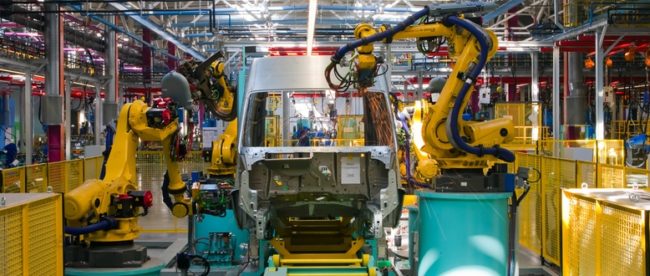What does the future hold for the French automobile industry?

The French automobile industry has recently displayed some positive signs of growth but the industry’s main players still have several challenges to overcome in order to continue to develop. To remedy this, the sector presented an action plan published by the Plafetorme Automobile (PFA) in the form of a sector contract for the period 2018-2022 which commits the State and the representatives of the sector to adhering to the action plan.

The PFA, Automotive and Mobility Sector, is an entity created to contribute to the definition, coordination and promotion of actions needed to improve competitiveness and strengthen the French automobile industry.
The challenges facing the French automobile industry
The French automobile sector must adopt new transformation measures to prepare for the changes in new businesses, as well as adapting to the new skills created by the mobility revolution and the contribution of new technologies.
One of the most important challenges facing the sector is the technological disruption caused by new environmental laws, particularly in relation to the electric motor and the evolution of the energy mix required by government policies.
The leading players of the sector also face the challenge of digital disruption which has led to the emergence of new options in connected, autonomous and intelligent vehicles via the integration of the data protection issues of users.
The third major challenge for the French automobile sector is societal disruption which has resulted in a major demand for new mobility offers and has led to profound changes in the relationship of consumers to their car.
Training, an indispensable tool for the automobile industry
The road map drawn up by industry players aims to take into account the mechanisms likely to transform the sector, namely energy, digital technology, competitiveness, the environment and human capital.
Employee training will be the focal point of this transformation with the aim of the action plan being to increase the use of work-study programs, particularly apprenticeships, by the end of 2020 for employees wishing to retrain and also meeting the changing skill sets needed by employees by helping them to obtain new diplomas or titles (bac pro, engineers, BTS).
The sector also plans to update forward-looking studies on the issues of employment and skills transfers. Twenty training courses will be set up by the end of 2021 as part of the “Attractiveness, Employment, Competence” (ACE) program set up by the PFA Filière Automobile & Mobilités in accordance with the “Partnerships for vocational training and employment “under the Investment Program for the Future (PIA). An employment portal for automobile services is also expected to be put in place.
This action plan then plans to work on the roll-out of Campus Trades and Automotive Qualifications with regions and colleges. A program called “The automobile, future professions, companies that recruit” dedicated to service companies will also be developed to establish this road map and implement a commitment to development and skills (EDEC) for the automobile sector.

